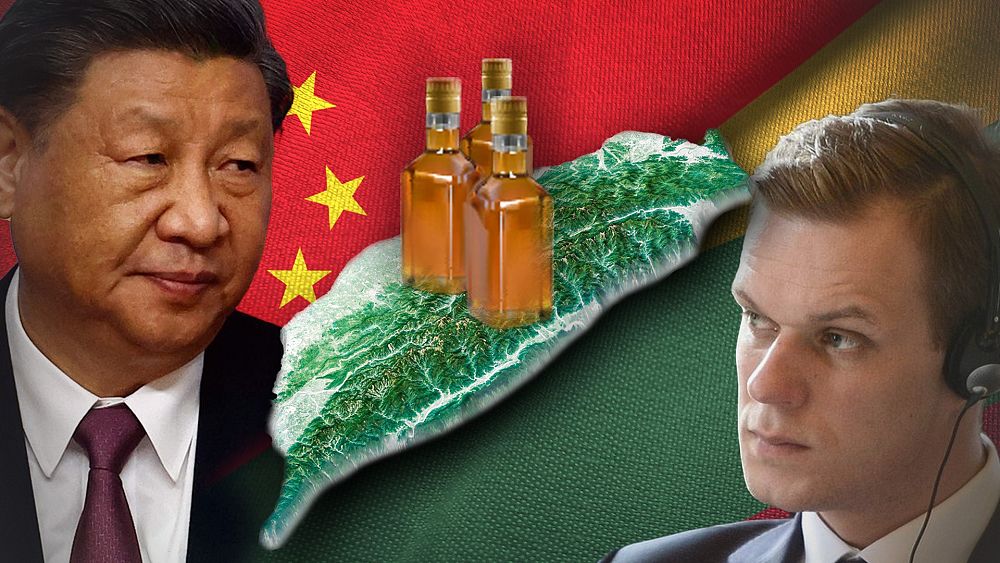
If you were in Taiwain during 2021, you can’t have failed to notice the government’s social media campaign to promote rum-based cocktail recipes.
It was a state-level effort to use up some 20,400 bottles of rum that were originally bound from Lithuania to China, but which Taiwan hastily purchased.
But why?
Allegations of ineptitude, geopolitics, business deals and idealism are all part of the story.
Thd story begins that same year when Lithuania allowed Taiwan to open a de facto embassy in its capital Vilnius.
China was outraged. For Beijing, it was tantamount to recognising the island as a sovereign country – something it considers a red line, claiming Taiwan as its own.
Lithuania said the bold move would not only pay off economically by galvanising Taiwanese investment, but reflected its new “values-led” foreign policy.
Officials tried to present the small Baltic country as a bastion of freedom and democracy in an increasingly authoritarian neighbourhood, styling their support of Taipei in similar terms.
What happened next caught the Lithuanians completely off guard.
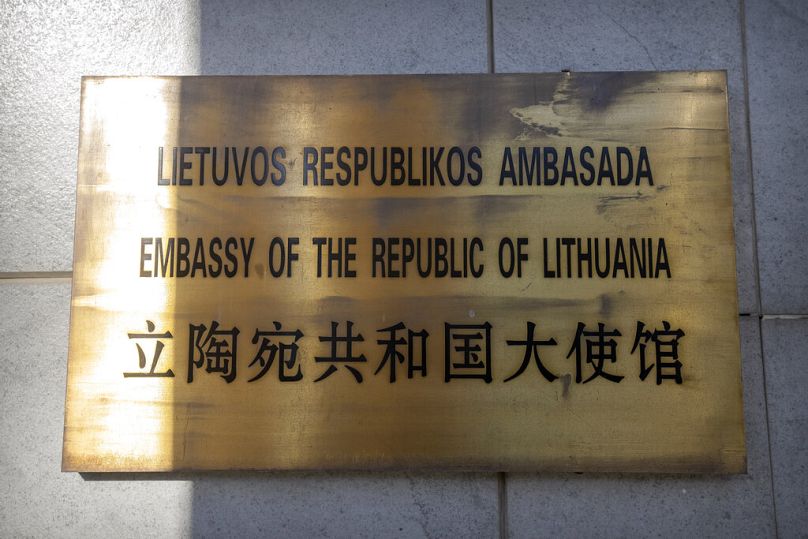
China – the world’s second-largest economy – reacted fiercely. It banned imports from Lithuania and pressured foreign manufacturers to stop using Lithuanian parts.
Beijing withdrew its ambassador from Vilnius and the Baltic country was forced to evacuate its remaining diplomats from China over fears for their safety.
“It did huge economic damage,” historian and political scientist Šarūnas Liekis told Euronews.
While other factors such as COVID and the Ukraine war are at play, these trade restrictions have had a pointed inflationary impact on Lithuanian businesses and consumers, he says.
Many workers already endure low wages and regressive flat taxes in Lithuania.
Trade was similarly battered. Lithuanian exports to China plummeted from €350 million in 2020 to €100m last year, according to the president of the country’s Confederation of Industrialists Vidmantas Janulevičius.
Feeling compelled to compensate for the mauling Lithuania suffered, Taiwan has tried to mitigate these losses – buying the Lithuanian rum for example.
Politicians have talked of pending investments from Taipei of hundreds of millions of euros though only a few million has so far materialised.
That’s compared to the €4.8 billion Taiwan invested in China in 2022.
Lithuania’s presidential advisor Asta Skaisgirytė criticised Taiwan in October, saying “there were higher hopes from Taiwan”.
“When they were opening their representative office, they were promising huge investments, which so far are not so visible,” Lithuania’s public broadcaster LRT quoted her as saying.
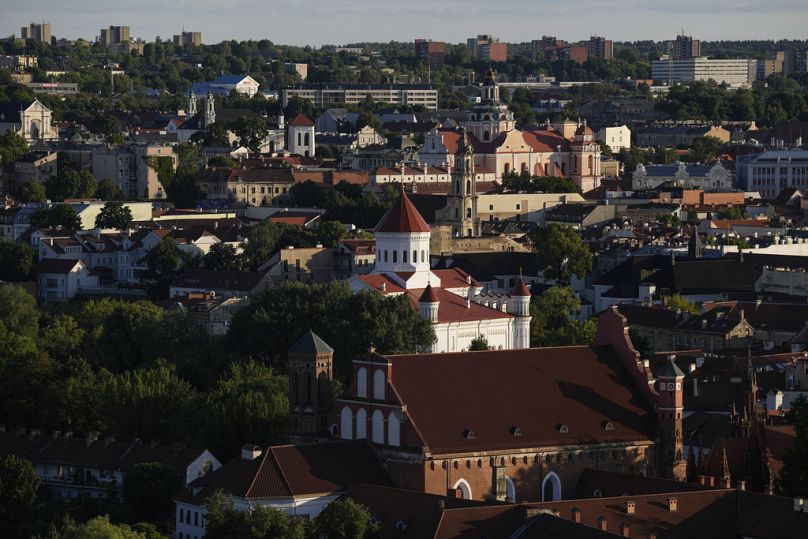
When Lithuania decided to open the Taiwan embassy, the small country of some 2.8 million people found itself almost alone.
Beyond applause from some foreign officials and media outlets, Vilnius “did not receive any tangible support from Washington and Brussels,” said Liekis.
“Expectations from the Lithuanian side were much greater from their partners.”
This was despite Lithuania’s move being driven by a desire to “look good” in the eyes of its principal ally, the US, he continued.
Media reports suggest Lithuania did not consult diplomats in Brussels beforehand, yet then pleaded for EU support when things went south.
However, the EU Commission later approved Lithuania’s proposal for a €130 million rescue package for companies hit by China’s trade restrictions and Brussels took a case against Beijing to the World Trade Organisation.
“This is completely a story of incompetence,” claimed Liekis. “Diplomatically, it made Lithuania look unpredictable. That they can make moves irrationally without any practical considerations.”
Even Lithuania’s president Gitanas Nausėda complained in 2021 that the decision had not been coordinated with him by the government, led by Prime Minister Ingrida Šimonytė.
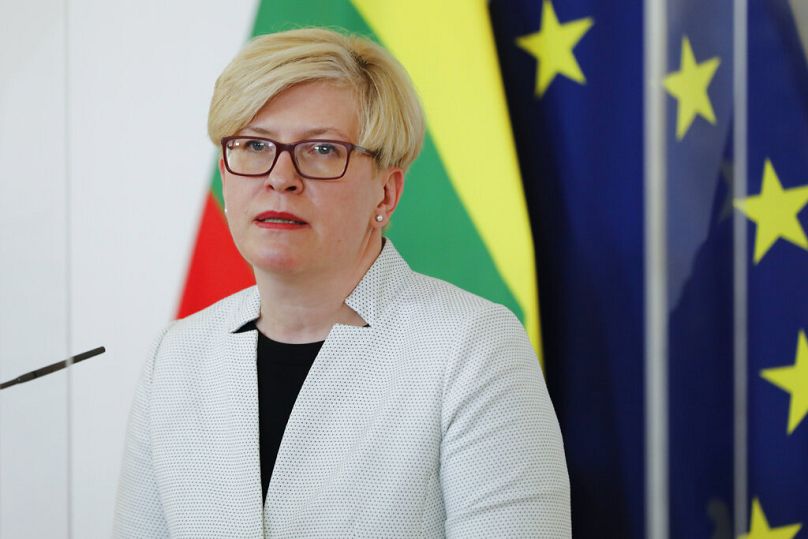
When approached for comment, the Lithuanian Foreign Ministry said it was “China, not Lithuania, that has chosen [an] aggressive policy and illegal economic coercion.
“Lithuania’s experience is the best proof that it is possible to make a U-turn from a victim of economic coercion to a success story of economic resilience just in one year.”
It cited figures that 94% of Lithuania’s services were now exported to what it called “like-minded” countries across the EU and NATO.
Though Vilnius holds up Taiwan as the centrepiece of its values-led foreign policy, some point out it is deeply contradicted.
“I don’t buy this values foreign policy because it is not consistent,” said Liekis. “Sometimes they use this democracy rhetoric to support their actions. Yet on the majority of issues around the world, they are silent and don’t do anything.”
Lithuanian foreign minister Gabrielius Landsbergis dodged questions about whether he would condemn concerns about rule of law violations in Poland, despite naming “good relations with neighbours who respect the rule of law” as key to Lithuanian foreign policy.
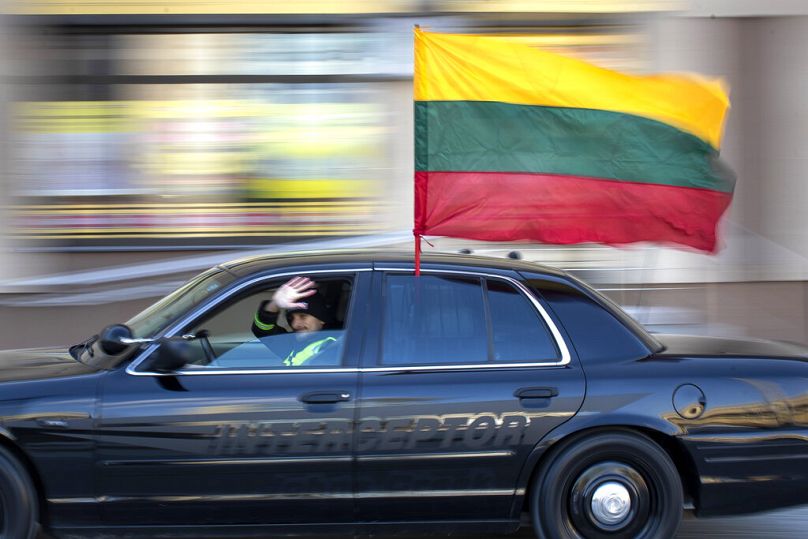
Darker forces could also be at play, however.
Lithuania’s TV3 reported that companies which donated to Lithuania’s ruling Homeland Union – Lithuanian Christian Democrats ahead of elections in 2020 also received investments from Taiwan.
This money may have then influenced their Taiwan policy when they came to power, claimed Liekis.
This allegation has been put to the party, but Euronew has not received a response.
Lithuania’s government has stood firm against China’s economic and political coercion, though many lawmakers inside the country are wavering.
Earlier this month, an official trip to Taiwan by the country’s Parliament Speaker was given the go-ahead, despite complaints from other MPs.
“We were and remain the only ones in the world to open Taiwan’s embassy, which significantly worsened our relations with China, both in terms of trade and various other aspects,” MP Jonas Jarutis of the opposition Lithuanian Farmers and Greens Union said during a meeting of lawmakers.
“I do not approve of this,” he added.
Relations between Lithuania and China remain frozen for now, but it is “going to be a major problem for the next government,” warned Liekis.





